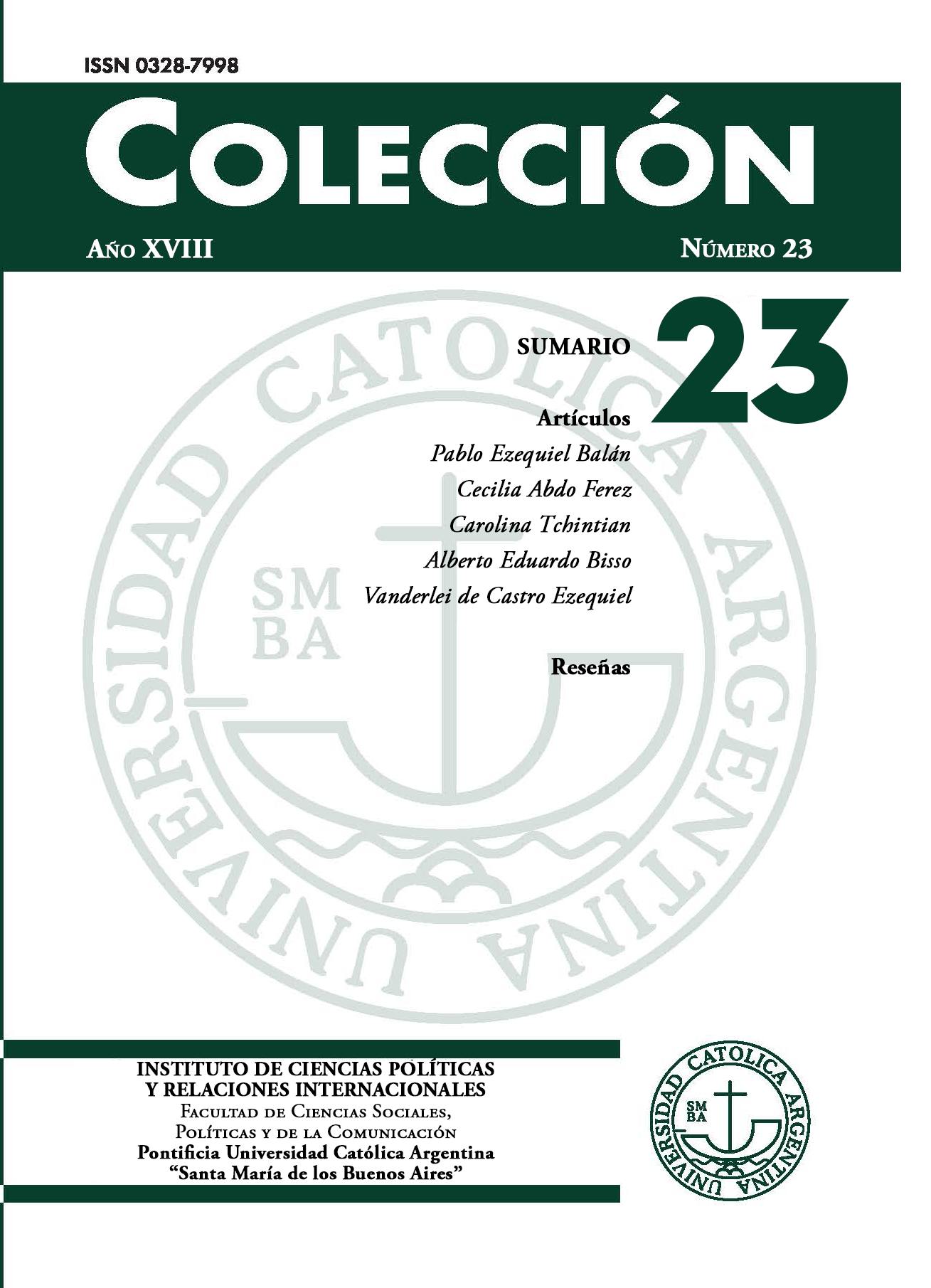Democracy indexes and Argentine politics. On the validity of measurements
Keywords:
Democracy indexes, Argentine politics, political regimesAbstract
Among those who took the initiative to measure the democracy as political regime, there is no general agreement on the operational definition upon which an index should be built, on the attributes that should be measured, or on what is the most appropriate aggregation rule to reflect the similarities and differences between regimes over time and space. It is precisely because of these disagreements that the different indexes available may describe different stories about the same historical phenomena. This work aims to compare the evolution of democracy depicted by some of the most-commonly-used indexes against the evolution of democracy in Argentina during the 20th century and the first decade of the 21st century. In this paper I review four measurements of democracy: Przeworski’s Democracy-Dictatorship index, developed and extended by Cheibub; Vanhanen’s index of Democracy; the Polity IV index; and the Freedom House index. Based on Argentine politics from 1900 to 2011, I analyze the evolution of democracy according to each index in order to assess which one better reflects and describes the actual facts that shaped Argentine democratic history during those years.Downloads
Downloads
Published
2023-04-11
How to Cite
Tchintian, C. (2023). Democracy indexes and Argentine politics. On the validity of measurements. Colección, (23), 69–98. Retrieved from http://200.16.86.39/index.php/COLEC/article/view/869
Issue
Section
Research Articles
License











 Colección
Colección